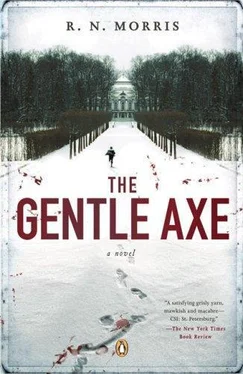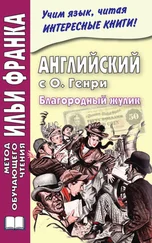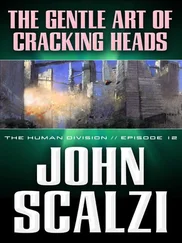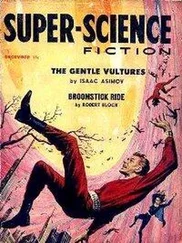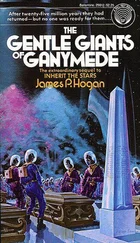R. Morris - The Gentle Axe
Здесь есть возможность читать онлайн «R. Morris - The Gentle Axe» весь текст электронной книги совершенно бесплатно (целиком полную версию без сокращений). В некоторых случаях можно слушать аудио, скачать через торрент в формате fb2 и присутствует краткое содержание. Год выпуска: 2008, ISBN: 2008, Издательство: Penguin Books, Жанр: Исторический детектив, на английском языке. Описание произведения, (предисловие) а так же отзывы посетителей доступны на портале библиотеки ЛибКат.
- Название:The Gentle Axe
- Автор:
- Издательство:Penguin Books
- Жанр:
- Год:2008
- ISBN:9780143113263
- Рейтинг книги:5 / 5. Голосов: 1
-
Избранное:Добавить в избранное
- Отзывы:
-
Ваша оценка:
- 100
- 1
- 2
- 3
- 4
- 5
The Gentle Axe: краткое содержание, описание и аннотация
Предлагаем к чтению аннотацию, описание, краткое содержание или предисловие (зависит от того, что написал сам автор книги «The Gentle Axe»). Если вы не нашли необходимую информацию о книге — напишите в комментариях, мы постараемся отыскать её.
The Gentle Axe — читать онлайн бесплатно полную книгу (весь текст) целиком
Ниже представлен текст книги, разбитый по страницам. Система сохранения места последней прочитанной страницы, позволяет с удобством читать онлайн бесплатно книгу «The Gentle Axe», без необходимости каждый раз заново искать на чём Вы остановились. Поставьте закладку, и сможете в любой момент перейти на страницу, на которой закончили чтение.
Интервал:
Закладка:
“These are all interesting theories,” said Porfiry with a smile. “And indeed plausible. However, there are circumstances surrounding his disappearance that incline us to treat it as suspicious.”
Vadim Vasilyevich shifted nervously. “If you will excuse me, I have duties to attend to.” Vadim Vasilyevich bowed.
“By all means,” said Porfiry. “But I will wish to talk to you again before I go.”
Vadim Vasilyevich’s small mouth twitched into an uneasy smile, and he crossed into an adjoining room off to one side.
“There are just the two of us here,” said Osip Maximovich, by way of explanation. “Unlike our illustrious neighbors, Smyrdin, we must do everything ourselves. We have an urgent order to prepare for the University of Moscow.”
Impatiently, Porfiry nodded his acknowledgment, then asked, “Is it customary for you to go on spiritual retreat?”
“No, this is the first year that I have done it. And I discovered it is something I have been longing to do all my life. To begin the Christmas fast with a penitent’s retreat. Perhaps it is something to do with getting older. One reaches a certain age. The issue of mortality becomes more pressing. One’s death is no longer an abstract proposition, it is an imminent reality. You were right to question my belief, by the way. I have not always been a believer. As you have probably worked out, I am the son of a priest. I was myself educated in a seminary, and it seemed at one time that I too would follow the path of my father. But like so many of my generation, I discovered philosophy. And science. And doubt. It used to be my opinion that faith and knowledge were irreconcilable opposites. To embrace faith by definition meant rejecting the truths that one had acquired through knowledge. Hard-won truths. I could not in all conscience do the latter, so it was impossible for me to do the former. I was too much under the spell of logic, so I reasoned myself out of my faith. But now I think I have found a way to reconcile them.”
“And how did you do that?”
“I read Hegel. I discovered that true knowledge, the true subject and object of philosophy, is the spirit knowing itself as spirit.”
“I have never been to Optina Pustyn.”
“You should go. I mean, really you should. From the longing in your voice, I can tell that it is what your soul craves. For me there was an added impetus, in that one of the monks there, Father Amvrosy, taught me as a seminarian. He also taught my father. He is an old, old man now. He will die soon. There was a chance that if I did not go this year, I would never see him again in this life. He is without doubt the holiest man in Russia.”
“It is a long way to Optina Pustyn.”
“For sure. One must take the train to Moscow. From there one travels to Kozelsk. But there is no road to the monastery itself. One must approach it on foot or by river, or as I did.”
“And how is that?”
“On my knees.”
Porfiry sighed. “Perhaps one day I shall go. One day very soon.”
“I would urge you to.”
“What was the date you left St. Petersburg?”
“Let me see, it was the twenty-eighth, I believe. The twenty-eighth of November. The train left at twenty minutes past eight in the morning. Isn’t that a strange coincidence?”
“You arrived in Optina Pustyn?”
“On the evening of the following day.”
“And you returned to St. Petersburg when?”
Osip Maximovich’s eyes flitted briefly as he calculated. “Two days ago, was it now? I have been so busy since returning, and this existence is so different from the spiritual calm of the monastery. It seems a lifetime ago since I left there.”
“Thank you, Osip Maximovich. You have been most helpful,” said Porfiry with a bow. “Now there is just one question I would like to ask Vadim Vasilyevich.”
Porfiry moved quickly to the adjoining room. His sudden appearance seemed to surprise the secretary, who tried to give the impression that he was busy wrapping books, and had been for some time. It was obvious, however, that he had been listening.
“Vadim Vasilyevich, on the day Osip Maximovich took the train to Moscow, you accompanied him to the station, did you not?”
“Yes?”
“Did you see him onto the train?”
“I saw him onto the train and waved him off.”
“And you remained in St. Petersburg the whole of the time that he was away on retreat?”
“Indeed.”
“Thank you.” Porfiry bowed and was about to leave, but there was something in the other man’s expression that sought to detain him.
“May I ask you,” began Vadim Vasilyevich hesitantly. “The work that Stepan Sergeyevich was doing for us, the Proudhon translation-do you know what has become of it?”
“It is in my possession.”
“We would appreciate it very much if it could be returned to us. We have a book to prepare, you understand. And we must find another translator to complete Stepan Sergeyevich’s work. Possibly I will have to undertake the task myself, or Osip Maximovich. It would be helpful to know how much Stepan Sergeyevich managed to complete.”
“I’m afraid that will not be possible just yet. I have not finished analyzing it. It may turn out to be important evidence.”
“How long do you think you will need it for?”
“I can’t say.”
“I don’t see what possible use it could be to you.”
“That is for me to determine.”
Vadim Vasilyevich stared at Porfiry for a long time. His eyes narrowed but did not blink. “Osip Maximovich is a saint,” he said at last.
Porfiry bowed, as though in gratitude for this information.
An Abundance of Icons
She moved through the Apraxin Arcade with the same inflexible determination with which she had crossed Petrovsky Park, only a few days before. Those who saw her coming stepped aside. Those who didn’t felt the buffet of her shoulder or the swipe of her arm, and skipped out of the way with an angry sidelong glance at the force that had impelled them. They saw an old woman bundled in layers of ragged clothes, a strange, sealed expression on her face. It was almost a smile, but cunning prevented it from going so far. If anyone studied her face for long enough, they would reach the conclusion that there was a secret contained in it. But whatever that secret was, it could not escape through the tight slits of her eyes.
She reached the corner of the market where the icon dealers were to be found. Her approach stirred the sheepskin-clad traders into an exchange of nods and winks. There was something conspiratorial, but also competitive, in the way they bristled at the prospect of her. They vied for her custom with friendly cries and waves: “Hello Granny!” “Madam!” Those who knew her name called out, “Zoya Nikolaevna!”
But she chose today, as had done on previous days, a dealer who made no effort to get her attention or her business. It was his face, and more specifically his eyes, that drew her. He had the eyes of Christ the Redeemer. And just like the Christ figure in one of the icons he sold, his long hair fell around his shoulders in ringlets, and his beard was divided into two soft points. He was a young man, the youngest of them. His face was always serious, giving the impression that he was well aware of the solemnity of his trade. The others hawked their icons like half-kopek cakes.
He acknowledged her presence at his stall with a silent upward tilt of his head. Her greeting in return was an involuntary twitch of the mouth.
She scanned the banks of icons, arranged according to the holy personages represented and the manner of representation. Here the Christs: Christ Immanuel, Christ Redeemer, Christ’s Descent into Hell, Christ of the Fiery Eye, Redeemer with Moist Beard, Redeemer Not Painted by Human Hands. Next to the Christs were the Marys (although, of course, both figures were featured in depictions of the Nativity): Virgin of Compassion, Our Lady of Vladimir, Our Lady of Kykkos, Our Lady of Refuge and Succor. And then the saints: Saint Nicholas, Saint John, Saint George, Saint Paul, Saint Demetrius. The lights of the market glinted softly in the gold paint and jewels.
Читать дальшеИнтервал:
Закладка:
Похожие книги на «The Gentle Axe»
Представляем Вашему вниманию похожие книги на «The Gentle Axe» списком для выбора. Мы отобрали схожую по названию и смыслу литературу в надежде предоставить читателям больше вариантов отыскать новые, интересные, ещё непрочитанные произведения.
Обсуждение, отзывы о книге «The Gentle Axe» и просто собственные мнения читателей. Оставьте ваши комментарии, напишите, что Вы думаете о произведении, его смысле или главных героях. Укажите что конкретно понравилось, а что нет, и почему Вы так считаете.
